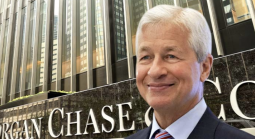Allen Stanford Fraud Case Could Mar Online Gambling Hub

The tiny Caribbean nation of Antigua has done most things right. They have cooperated with other international governments in order to ensure their banks were in compliance as a means of cracking down on money laundering. Antigua also won a landmark World Trade Organization case against the United States to allow its profitable online gambling center to continue operating and presumably take bets from U.S. citizens. Over the last decade Antigua has enjoyed some degree of success regulating its own i-Gaming companies. Those of us here at Gambling911.com are well aware of the pre 1996 licensing online gambling era in Antigua where unscrupulous sportsbook operators routinely set up shop then went on to stiff hundreds of customers.
As Antigua and Barbuda work with the new Obama Administration in an effort to settle WTO grievances, a dark shadow has been cast upon the island this week.
Enter Texas billionaire, Allen Stanford. He is now under investigation with the SEC related to an alleged fraud that regulatory body is calling one of "shocking magnitude" that "spans the world and involves $8 billion in securities that were allegedly falsely marketed to customers."
Seems we've heard this story before and many of us have a sinking feeling these tales will soon become commonplace.
Stanford owns Antiguan-based bank, Stanford International Bank, which, according to Doctor Housing Bubble, sold roughly $8 billion of certificates of deposit to investors through a network of financial advisers by promising "improbable and unsubstantiated" high interest rates, the regulator said in a statement.
The rates were "supposedly" earned through the bank's investment strategy, which "purportedly" allowed the bank to achieve double-digit returns on its investments for the past 15 years, the SEC added.
The SEC has also charged Stanford International Bank's Chief Financial Officer James Davis and Stanford Financial Group's Chief Investment Officer Laura Pendergest-Holt. "Stanford and the close circle of family and friends with whom he runs his businesses perpetrated a massive fraud based on false promises and fabricated historical-return data to prey on investors," said Linda Chatman Thomsen, the SEC's enforcement-division director, in a statement.
Stanford International Bank is currently under investigation by the FBI as well, according to the Wall Street Journal. On Tuesday, about 15 federal agents, some wearing U.S. marshals jackets, entered the headquarters of Stanford's company, the Stanford Group, in Houston, Texas.
And while the bank's founder may be American, Caribbean islands like Antigua and a number of Latin American nations have developed a reputation for harboring "disreputable" citizens from the States or otherwise welcoming their business. It's an image, Antigua at least, has tried to overcome.
During the 1990's the island nation found itself the centre of international money laundering rackets.
Antiguan officials claimed that the exposure of the money laundering was indicative of the success of tighter regulation of the island's offshore financial services.
The island's image improved during subsequent years.
Sir Ronald Sanders, the former high commissioner to the United Kingdom representing Antigua and Barbuda, had the task of negotiating on financial and trade matters in the World Trade Organization and with the International Monetary Fund and the Organization for Economic Cooperation and Development.
In 2002, he spoke before a banking conference, proclaiming Antigua's accomplishments in building trust of its financial sector.
"We are very well aware that if the international community sees our jurisdiction as lax or poorly regulated, your institutions will suffer. For, none of the Banks in major financial capitals will do business with institutions which operate in jurisdictions that are doubtful. For this reason, it is important for the growth of our economy, and for the successful operations of your businesses, that our jurisdiction enjoys the widest possible approval in the financial centers of the world."
Stanford though became a citizen of Antigua ten years ago and was the first American born citizen to be knighted by the commonwealth nation.
Not only does the Stanford "crisis" stand to once again mar Antigua's image as an offshore banking center, the island's economy (which is second strongest in the Caribbean after Barbados) could sputter into complete disarray. Panicked residents were queued up in long lines at both branches of the bank yesterday.
The bank has since placed a 60-day moratorium on early redemptions of its certificates of deposit.
One Austin, Texas-based depositor told Bloomberg News he called his advisers Feb. 12 and was told he could not cash out his CDs. He said last summer he tried to double his investment in 5-year CDs, which were yielding 8.5 percent, and was told the bank at that time wasn't accepting new deposits.
"Bank depositors may withdraw funds in accordance with the terms of their accounts," Stanford spokesman Brian Bertsch said.
Prime Minister Baldwin Spencer has assured residents there is no need for panic with respect to the Antigua-based operations of the global company.
He offered some reassuring news.
"The Eastern Caribbean Central Bank is in touch with the Bank of Antigua and the government and is currently putting in place a contingency plan. Therefore, there is no need for panic," Prime Minister Spencer stated in a nation-wide address.
But PM Spencer also issued a dire warning, saying that the Stanford Bank crisis has "profound serious implications for Antigua and Barbuda."
Jagajeet Chiba, Gambling911.com













